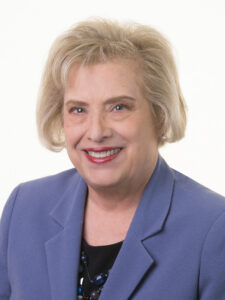
Susan A. Rotenberg, PhD, a professor at Queens College in New York, discovered her passion for biomedical science as a teen, an interest that continued to deepen as she pursued an exceptional academic and research career. She earned a Bachelor of Arts in zoology from Connecticut College in 1975, followed by a Master of Science in biological chemistry from Hahnemann Medical College in 1980, and a Doctor of Philosophy in chemistry from Brown University in 1985. Eager to broaden her expertise, Dr. Rotenberg embarked on postdoctoral fellowships at The Rockefeller University as well as the Columbia University Irving Medical Center, refining her skills and developing a distinct research focus.
Since joining the faculty at Queens College in 1990, Dr. Rotenberg has become an integral part of the institution and has held various leadership roles. She was chair of the Department of Chemistry and Biochemistry and was appointed interim dean of the School of Mathematics and Natural Science. Her leadership extended beyond administration—she chaired numerous committees, contributed to the college’s Middle States self-study, and guided initiatives that enhanced both faculty and student scholarship.
Dr. Rotenberg is known for her commitment to teaching, mentoring students in undergraduate and graduate biochemistry programs, and providing hands-on training to pre-professional students in her laboratory. Her research, particularly on the molecular mechanisms that contribute to metastatic breast cancer, has earned extensive support from the National Institutes of Health (NIH) and other research foundations, leading to more than 50 publications in respected scientific journals. This work includes significant achievements, such as her research on dequalinium analogues in sunscreens, for which she holds patents.
A prominent figure in the scientific community, Dr. Rotenberg holds memberships in the American Association for Cancer Research and the American Society for Cell Biology. Her contributions to cancer research and her interdisciplinary collaboration with electrochemist Michael Mirkin have fostered an innovative interface between cancer biology and electrochemistry, which has opened new research avenues and inspired further studies. Dr. Rotenberg’s achievements have been recognized by several prestigious extramural grants (totaling over $2.4M) from the NIH, The Breast Cancer Alliance (‘Exceptional Project Award”), The Gustavus & Louise Pfeiffer Research Foundation, The Elsa U. Pardee Cancer Research Foundation and The Wellcome Travel Fund. These awards reflect her dedication and groundbreaking work, with her first NIH grant in 1993 marking a pivotal moment in her career. Beyond research, she has shared her expertise in conferences, workshops, and public forums, inspiring the next generation of scientists and medical professionals.
Outside her professional life, Dr. Rotenberg enjoys swimming, traveling, and creative writing. She envisions writing a memoir someday to share her journey in science and the insights gained during her career. As she continues her work at Queens College, Dr. Rotenberg remains committed to advancing knowledge of biochemistry and supporting students as they explore their own potential and develop a love for the subject. Her advice to aspiring scientists underscores her own approach to a fulfilling career: balance, resilience, and the courage to take chances. Her students often cite her influence as pivotal in their academic and professional achievements, particularly those who pursued medical school. By connecting scientific concepts with real-life applications, Dr. Rotenberg fosters a learning environment that not only educates but inspires.
